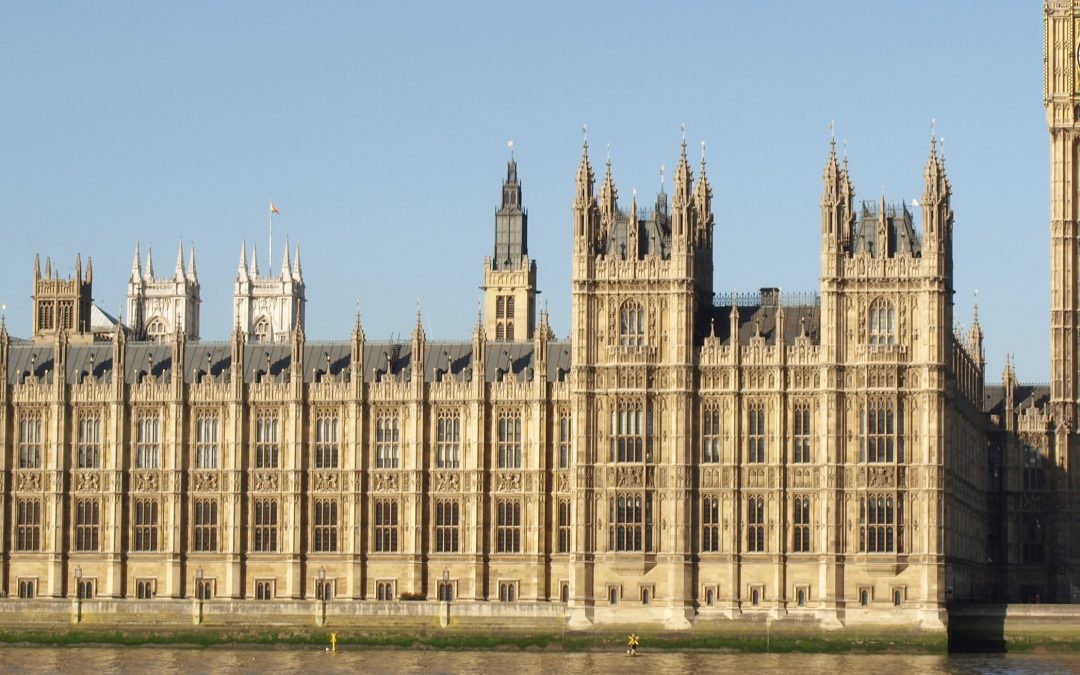As the UK welcomes the new Labour Government following the General Election, members of the food industry have commented on the results.
With the change in Government, Steve Reed OBE was appointed Secretary of State of Environment, Food and Rural Affairs. He takes over from Steve Barclay, who was appointed Defra Secretary in November 2023.
The sector highlighted the importance of food security, labelling and border controls to name a few.
Rod Addy, director general of the Provision Trade Federation (PTF), said: “PTF welcome the incoming Government and, together with the rest of the industry, are poised to work with it to address the immediate obstacles and challenges to maximising UK growth.
“These include food security and barriers to international trade, climate change impact and mitigation, the cost-of-living, the health crisis and labour and skills shortages. While the Government will face financial constraints, there are great opportunities for it to work in partnership with the pork, dairy and fish industries to bolster UK employment and GDP to secure common goals.”
“The new Government will need to hit the ground running with the plethora of challenges facing the UK food industry.”
Rupert Ashby, CEO of the British Frozen Food Federation (BFFF), said: “The new Government faces significant challenges relating to the food industry, including tackling the cost-of-living crisis, promoting healthier lifestyles and working towards vital environmental targets.
“Frozen food has a key role to play in all of these areas, but there are some key priorities that need to be addressed to maximise the impact we can have. These include streamlining the regulations around food packaging, modifying the plastic packaging tax (PPT) scheme and improving the processes around import and export of food, which are currently creating a large financial and administrative burden for businesses.
“We’re looking forward to collaborating with the new administration and lending our support where possible to work towards a more sustainable, healthy and prosperous UK.”
NFU president Tom Bradshaw said: “This is a reset moment for British agriculture as we work with Sir Keir Starmer’s new Government to drive our sector forwards and grow.
“Labour’s manifesto recognised that food security is national security, but it is business confidence which forms the foundation of this. With British farmers and growers ambitious for the future, what they – and the public – need are practical policies that revitalise farm business confidence and deliver on our shared mission of food security.
“In a cost-of-living ‘crisis’, our ability to provide affordable, climate friendly and high welfare food will be critical for families across the country, as well as underpinning the UK’s largest manufacturing sector, food and drink, and stimulating economic growth.”
“The number one priority for the new Labour Government must be to set an increased multi-year agriculture budget for the duration of the next Parliament.”
Bradshaw continued: “That’s why, for Britain’s farmers, the number one priority for the new Labour Government must be to set an increased multi-year agriculture budget for the duration of the next Parliament. This is about investing in the future of British farming – in homegrown food, in the environment and in renewable energy.
“In the coming days and weeks, we will be building on our strong engagement with Labour ministers to date to discuss essential policy solutions on key issues for our members. There are a number of policies within Labour’s manifesto which we will want to see actioned, for example ensuring the new Environmental Land Management Schemes work for all farm businesses, setting core standards for food imports and legislation to boost public procurement.
“At the same time, there are various issues that need greater recognition if the sector is to unlock its potential for growth, such as a fit for purpose Seasonal Workers Scheme, effective import controls, supply chain fairness, investment in infrastructure and flexibility in planning.”
He concluded: “Our members will also want to see the new Government’s commitment to food security by being alert to the risk and impact of disease, particularly bovine TB, as we work towards the Government’s target to eradicate this terrible disease by 2038. With the latest science showing a 56% decline in TB outbreaks, continuing with an effective and comprehensive eradication plan, which is based on scientific evidence, is essential.
“Working together on these immediate priorities is a win-win. The public will get more of the British food they know and love, farmers and growers will have the confidence to build profitable, sustainable, resilient businesses – supporting economic growth and environmental delivery – and this new Government will help to secure a safe supply of homegrown food in an increasingly volatile and uncertain world.”
“With the right conditions, our industry can boost investment, productivity, innovation and growth across our economy.”
Karen Betts, chief executive of the Food and Drink Federation (FDF), said: “Congratulations to Sir Keir Starmer MP and Labour on their decisive election victory. The food and drink industry is looking forward to working in active partnership with the new Government as collectively we address the big challenges the food system is facing and create opportunities from them, for individuals, families, communities and our economy.
“With the right conditions, our industry can boost investment, productivity, innovation and growth across our economy. There is huge scope to improve trade too, and to grow skills everywhere throughout the country, offering more people good jobs and great careers in a sector that’s central to everyone’s everyday lives. This will improve the resilience of our sector and food security in the UK, as well as contributing to food security in other countries.”
Betts continued: “We want to work closely with Government too to move further and faster towards a more sustainable food system, which achieves net zero and protects nature, while improving our environment by driving up recycling and establishing a successful circular economy.
“And we know we have a responsibility to work actively with Government and others in helping people to adopt healthier diets and lifestyles, to help improve everyone’s overall health.”
Election results
At the time of writing, Labour has gained 211 seats, while the Conservatives lost 251. Liberal Democrats gained 64 seats as the Scottish National Party lost 39.
- Labour: 412
- Conservative: 121
- Liberal Democrats: 72
- SNP: 9
- Sinn Fein: 7
- Independent: 6
- DUP: 5
- Reform: 5
- Green: 4
- Plaid Cymru: 4
Meat sector engages with new Government
Katie Doherty, chief executive of the International Meat Trade Association (IMTA), said: “IMTA is looking forward to meeting with new Government ministers in due course. We will be sending letters out to them as soon as they are in position to outline the urgent issues that members need addressing.
“We hope that clarity will be provided as soon as possible (and ahead of the summer parliamentary recess) on issues such as ‘not for EU’ labelling and decisions taken as a matter of urgency to review the Common User Charge which is negatively impacting on SMEs since the introduction of veterinary controls on 30th April. As we set out in our manifesto we hope that the new Government will recognise the cruciality of two-way trade to the UK meat sector.
“The new Government will need to hit the ground running with the plethora of challenges facing the UK food industry but we look forward to engaging constructively to support the new Government where relevant.”
Nick Allen, CEO of the British Meat Processors Association (BMPA), said: “In preparation for a new Government, BMPA has already been engaging with the Labour party to raise the issues our industry is most sensitive to, and over the next few days, we’ll find out who will be the people chosen to take on the ministries that have a direct bearing on meat processing. At that point, BMPA is ready to present a vision for the future of the British meat industry and the part our new political leaders need to play in Britain’s future food security.
“What this new Government does from now will form their legacy, and it’s our intention to help ensure that part of that legacy is a secure domestic food supply chain that can withstand the geopolitical and climate challenges of the future.”









